 Today, I am delighted to introduce guest blogger Dr. Miranda Sachs! Miranda studied History at Princeton University, and graduated in 2011. She worked extensively at our library, both in special collections and with me in community outreach. Miranda earned her PhD at Yale, and is now an assistant professor of European History at Texas State University.
Today, I am delighted to introduce guest blogger Dr. Miranda Sachs! Miranda studied History at Princeton University, and graduated in 2011. She worked extensively at our library, both in special collections and with me in community outreach. Miranda earned her PhD at Yale, and is now an assistant professor of European History at Texas State University.
That’s where she met Percy Jackson.
Or more accurately, that’s where she visited the Rick Riordan archive in Texas State’s Wittliff Collections. The collections “collect, preserve and present the cultural heritage of Texas, the Southwest & Mexico through works of the region’s storytellers—writers, photographers, musicians, filmmakers and other artists,” and Riordan’s papers and ephemera are part of the Southwestern Writers Collections (along Sandra Cisneros, Sam Shepard, Naomi Shihab Nye, Cormac McCarthy, and J. Frank Dobie to name a few).
Miranda found some incredibly cool stuff, and I will now turn the post over to her very capable hands. Take it away, Miranda!
Many, many years ago I was an undergraduate at Princeton and I had the privilege of working for Dr. Dana. It was the best job ever. I did things like glue lizards onto visors for a Holes watch party or tell jokes using a shark puppet. Dr. Dana introduced me to Percy Jackson and I loved the books. I even got to dress as a Greek lady for Princyclopedia, an event that Dr. Dana used to organize.

Miranda, on right, being fabulous. Department of Special Collections, Cotsen Children’s Library, Princeton University Library.
Since my time at Princeton, I’ve become a professor of French history. Imagine my surprise and delight when I discovered that Texas State, the university where I teach, has the personal collection of Rick Riordan, the author of the Percy Jackson books. I reached out to my old friend Dr. Dana and she sent me on a quest to check out what Rick Riordan sent to the Witliff Collections.
 Because of the new Lightning Thief mini-series, the library has some of the highlights from Riordan’s collection on display. As soon as I walked in the door, I saw a shirt for Camp Half-Blood. The display case had a replica of Riptide used for the film and some neat photos of Riordan speaking to kids. It also had hand-written copies of stories Riordan wrote as a kid! The room where I got to look at the documents had art on display from the covers of some of the books.
Because of the new Lightning Thief mini-series, the library has some of the highlights from Riordan’s collection on display. As soon as I walked in the door, I saw a shirt for Camp Half-Blood. The display case had a replica of Riptide used for the film and some neat photos of Riordan speaking to kids. It also had hand-written copies of stories Riordan wrote as a kid! The room where I got to look at the documents had art on display from the covers of some of the books.

The archivist let me look at some of Rick Riordan’s childhood stories. It turns out that Riordan was writing fantasy and mythology even back then. One story was about a god named Jzais living in a world called Tharcas. He wrote some of these stories by hand and others with a typewriter (yup, he was a kid before the computer.)
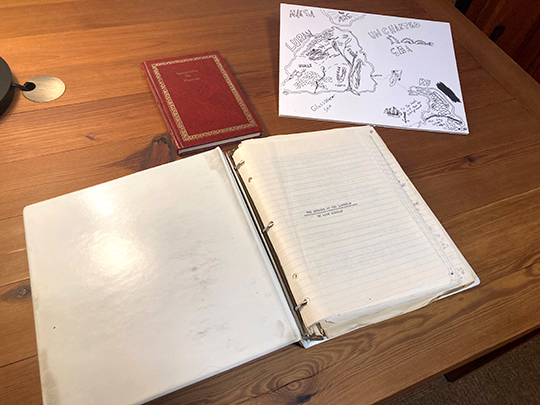
All the stories were on the original pieces of paper on which he’d written or typed. It was fun to look at stories he wrote in junior high school (back in 1978) and see comments from his teachers. One story called “The Ring of Fire” received 100/100!
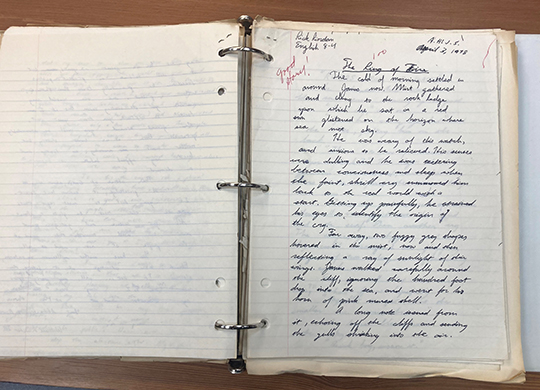
Rick Riordan was a teacher before he was a writer. One of the boxes in the collection includes a photo album with pictures from the final class of students he taught in 2004. Six years later, he went back to visit the school and those kids were seniors. Many of them wrote letters sharing how much he had meant to them as a teacher. They still remembered the story of Gilgamesh because he had told it to them with funny voices. Multiple kids recalled that they had carried out a mock trial using Hammurabi’s Code in his class. It seems that Riordan was a creative teacher who got kids excited about the ancient world even before he published the Percy Jackson books.

My favorite thing to look at was fan letters from kids. Some of the kids were harsh critics. A 7th grader named Caitlyn complained that the books droned on, and it took too long to get to the exciting parts. A boy named Sean was confused why Percy was dry when he came out of the water given that his father was the sea god. Others asked great questions. They wanted to know his favorite character and his favorite band. A girl named Lauren asked “ARE YOU A HALF BLOOD?” Another girl was curious if he would consider casting Arnold Schwarzenegger as Zeus in the film adaptation. (Sorry.)
Mostly, the kids wanted to express how much they loved the books. By the time Sea of Monsters came out, Riordan was getting multiple letters each day. It was super cool to see evidence of how much those books meant to kids. It was also cool to think that Riordan chose to save the kids’ letters. He decided they needed to be preserved in the archive alongside his fancy prizes and the early drafts of his books.
Before I left, I asked to hold Riptide. It was surprisingly heavy. I guess I’m not a demigod…

Photo by Katie Salzmann
We would like to thank Texas State University for so generously sharing their collections, and to Miranda for being awesome (as always!). Miranda is also an author! She published a book all about kids in nineteenth-century Paris called An Age to Work: Working-Class Childhood in Third Republic Paris.
Collections images courtesy of Miranda Sachs

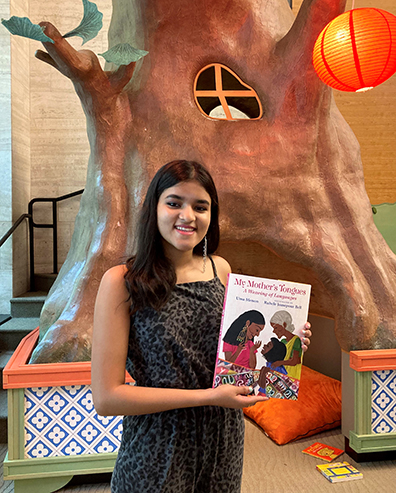
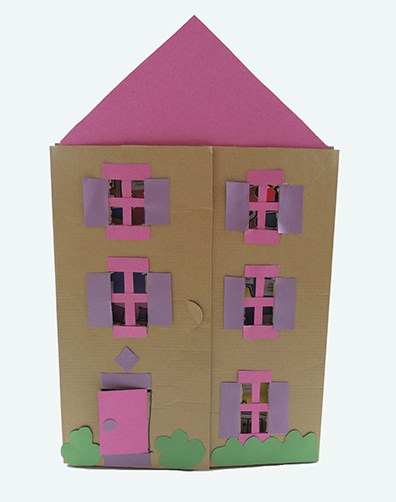 …that opens to reveal the names of everyday household items in all the languages mentioned in her book! Malayalam, Spanish, Hindi, French, and Tamil!
…that opens to reveal the names of everyday household items in all the languages mentioned in her book! Malayalam, Spanish, Hindi, French, and Tamil! We used some flat boxes we acquired from our library’s
We used some flat boxes we acquired from our library’s  After story time, I caught up with Uma to ask her about her experiences writing her picture book, and what’s she’s planning to do next:
After story time, I caught up with Uma to ask her about her experiences writing her picture book, and what’s she’s planning to do next: We are incredibly pleased to announce the four winners of our annual 350 for 50 writing contest! Young writers were challenged to compose a short, 350-word story that included the sentence, “Every movement was in slow motion.” Winners from our four age categories each enjoyed a $50 shopping spree on Amazon. Congratulations to this year’s winners!
We are incredibly pleased to announce the four winners of our annual 350 for 50 writing contest! Young writers were challenged to compose a short, 350-word story that included the sentence, “Every movement was in slow motion.” Winners from our four age categories each enjoyed a $50 shopping spree on Amazon. Congratulations to this year’s winners!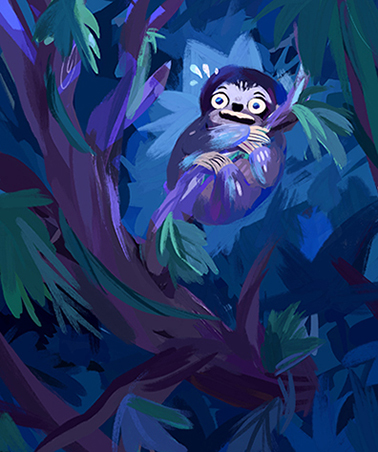
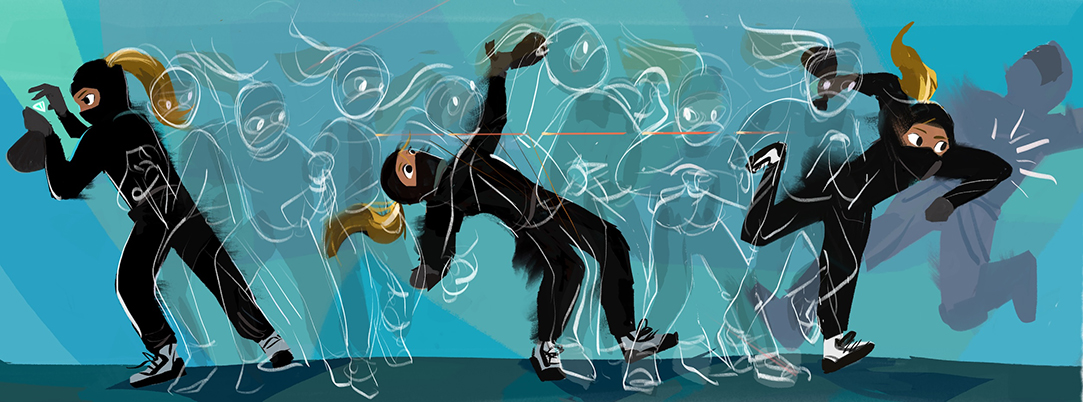
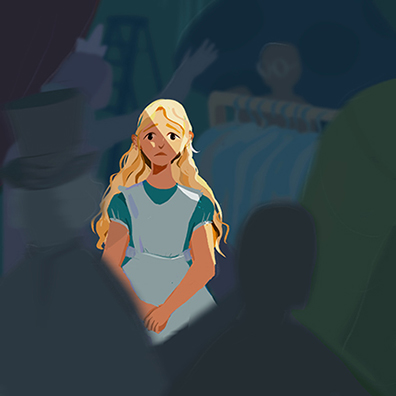
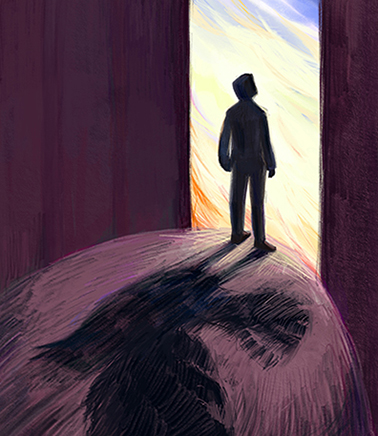 In Kansas, the land-locked heart of America, fathers like to sing a song about mockingbirds: If that mockingbird won’t sing, Papa’s gonna buy you a diamond ring. It’s a song about replacing good things lost with new and better things, a litany of warranties.
In Kansas, the land-locked heart of America, fathers like to sing a song about mockingbirds: If that mockingbird won’t sing, Papa’s gonna buy you a diamond ring. It’s a song about replacing good things lost with new and better things, a litany of warranties.